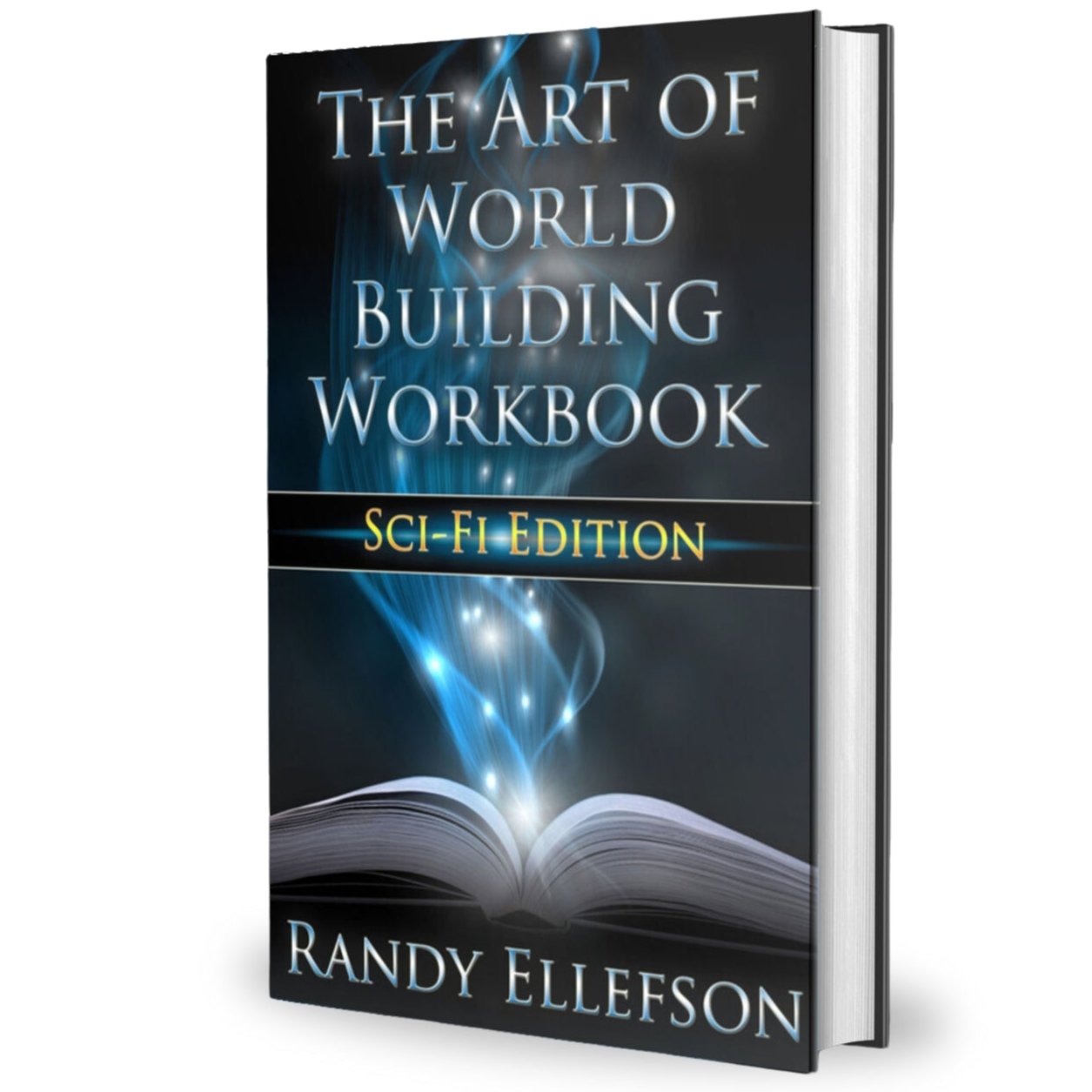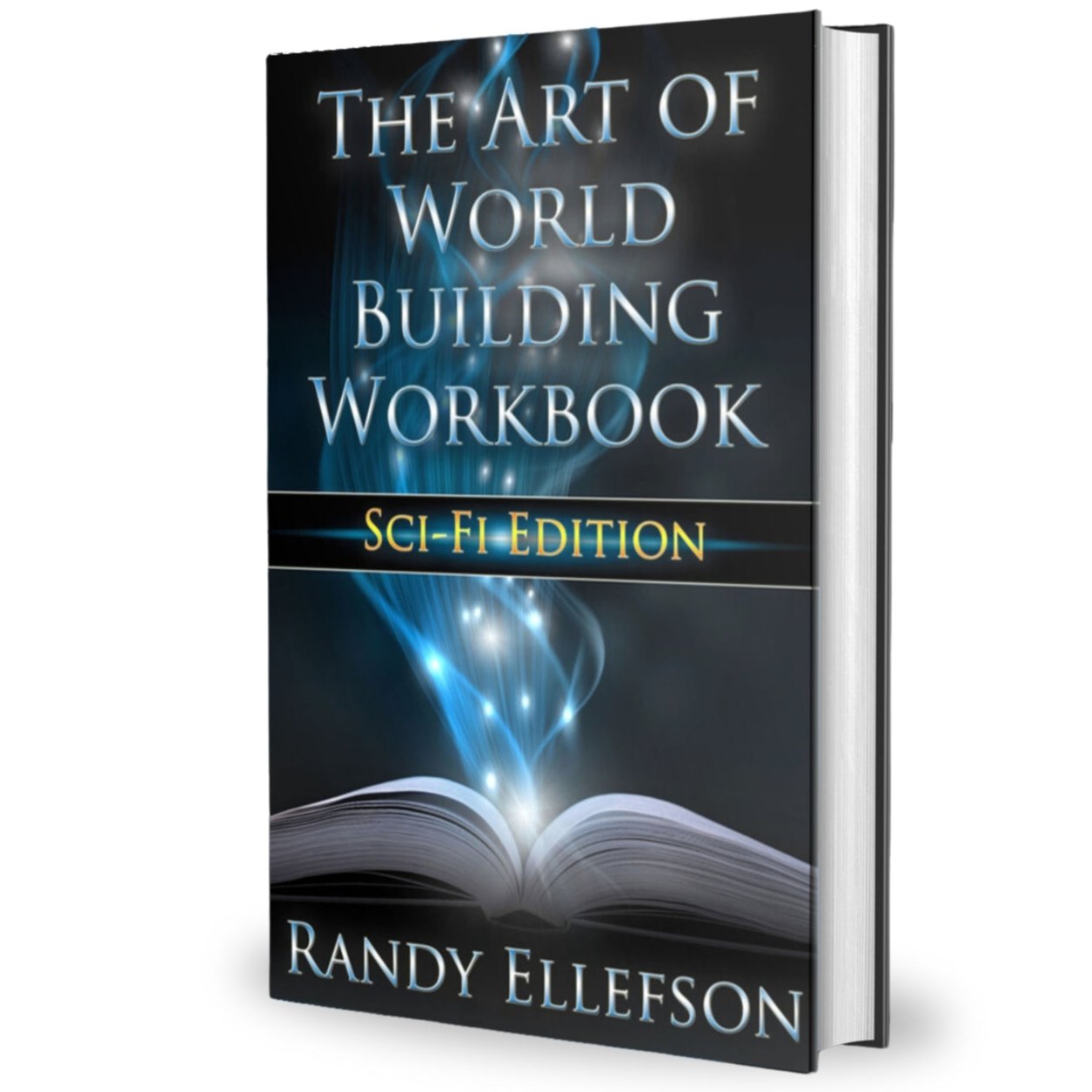The Art of World Building Workbook: Sci-Fi Edition (Hardcover)
The Art of World Building Workbook: Sci-Fi Edition (Hardcover)
4.2 Stars, 24 Amazon Ratings (as of 1/2024)
The Art of World Building Workbook: Sci-Fi Edition is designed to inspire world builders to write down their ideas in a physical book that can be taken wherever they go. Filled with writing prompts and plenty of room to expand, it covers the aspects of world building that the series it is based on, including:
The universe
Solar systems
Planets and moons
Continents and land features
Sovereign powers
Settlements
Interesting places
History
Species/races
Plants
Animals
Monsters
World figures like heroes and villains
Maps
Cultures
Religions
Items
Military groups
Organizations,
Advanced technologies like A.I. and spacecraft
And additional systems such as education, information, health, legal, and more.
Couldn't load pickup availability
Share

Product Details
FAQ: How Will I Receive My Book?
Books are sent by our printing partner, BookVault. See our shipping policy for more details.
Read a Sample
The Art of World Building Workbook is designed for storytellers, game designers, and hobbyists to create in-depth worlds that can help your work stand out from the considerable competition out there. The worksheets are the product of decades of world building expertise, research, and the authoring of The Art of World Building book series, podcast, blog and YouTube channel. The books include templates and examples of how to fill out many of them. Those templates have been turned into this workbook.
This workbook is intended to be used for a single project. A fantasy world builder in need of two detailed planets would need two workbooks, as the fantasy edition is arranged for one. For a sci-fi world builder, the scope is broader but less detailed – space to define multiple solar systems and planets is included here, each with fewer specifics; a project that sprawls to dozens of systems and planets would need additional workbooks.
The Workbook Editions
The workbook comes in two editions: fantasy and sci-fi. Minor differences between them are throughout and do not require explanation. For example, the legal section might ask, “Are there laws about the use of magic?” vs. “Are there laws about the use of technology?” But other differences are significant and result in entire sections being added or removed, or reduced/increased in size and scope. For example, fantasy world builders don’t typically need spacecraft, and the need for gods is reduced in sci-fi. All differences have a rationalization but are not explained here.
The primary differences between the volumes are these:
- The fantasy edition includes only one solar system and planet section, whereas the sci-fi edition has multiple sections.
- The fantasy edition has detailed sections on world history, land features, gods and pantheons, magic systems, and spells, whereas these are shorted in the sci-fi edition (and in the case of history, multiple shortened sections for multiple worlds)
- Space craft, AI, and technology are included in the sci-fi edition but omitted from the fantasy one.
By contrast, both editions include virtually identical sections on the universe/galaxy, land and sea features (including plants and animals), sovereign powers, settlements, places of interest, species/races, world figures, monsters, undead, cultures, organizations, armed forces, religions, the supernatural, items, names, games and sports, and legal, education, and monetary systems. When these subjects differ between genres, it is mostly in the number of worksheets/items you might need. For example, sci-fi often needs multiple solar systems but fantasy rarely does. The generalizations exist not to restrict the work you perform, but to avoid too many unneeded pages for most world builders. There is no ideal solution because project needs vary, and someone will inevitably be disappointed regardless of this book’s layout. The book at-tempts to satisfy the needs of the greatest number of world builders. Those who need more sheets for a subject may wish to photocopy pages before filling them out
Table of Contents
Introduction
The Universe
The Planet
Land and Sea
Sovereign Powers
Settlements
Places of Interest
Setting History
Gods and Pantheons
Species and Races
World Figures
Monsters
Undead
Cultures
Organizations
Armed Forces
Religions
The Supernatural
Magic Systems
Spells
Monetary Systems
Items
Names
Games and Sports
Legal Systems
Education Systems
Artificial Intelligence
The Ships
Availability at Retailers
It’s financially beneficial to any artist to buy directly from them, but this product may be available at these retailers.

